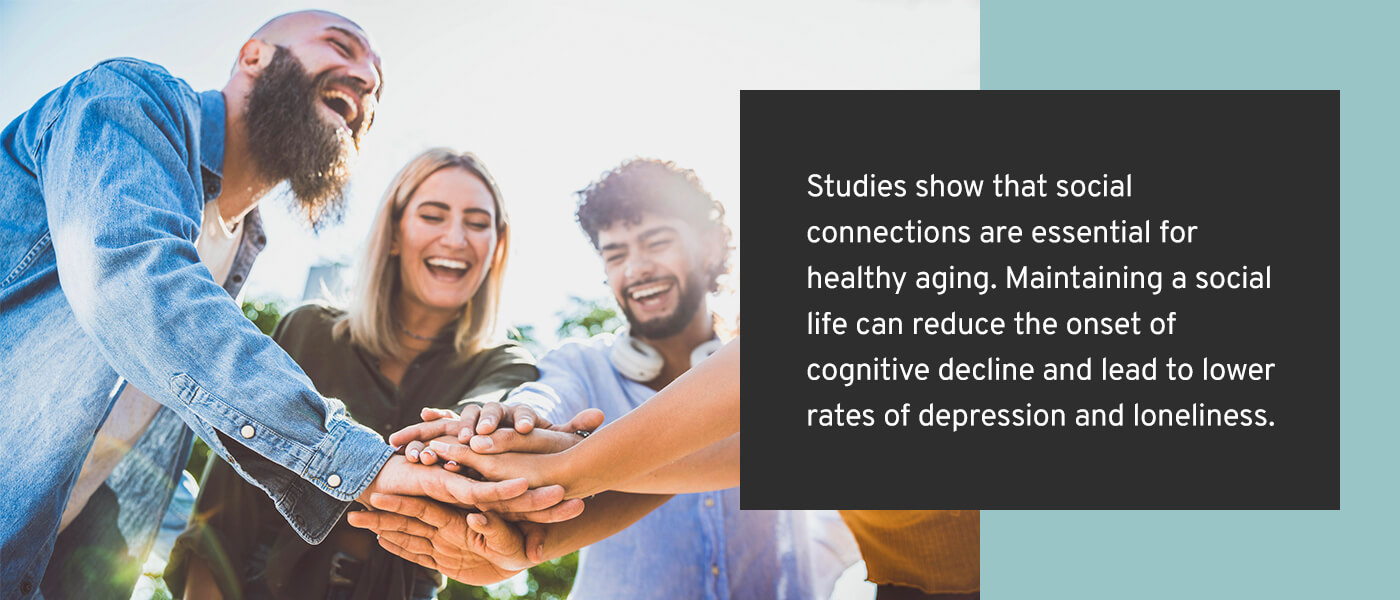Volunteering is an excellent way to help those in need, but did you know it also benefits your mental health? New research suggests the more you help out, the happier you feel. Volunteering and mental health benefits can range from improved moods and boosted confidence to a healthy outlet from your day-to-day schedule.
Whether volunteering in a foreign country or giving back to your local community, there are various ways you can provide support and reap the mental health benefits. Learn a few of the mental health statistics and personal benefits of volunteering below.
- Volunteering and Mental Health Statistics
- Volunteering and Mental Health Benefits
- Get in Touch With Taylor Counseling Group
Volunteering and Mental Health Statistics
Several studies show that people who volunteer experience a boost in their mental health, life satisfaction and social well-being.
For a recent study on the mental health effects of giving, researchers recruited 96 participants and gave them money over five days. The researchers instructed half of the participants to spend the money on themselves, while the other half spent it on others. All participants then completed surveys about their happiness and mood to measure how they felt after spending the money.
Those who spent the money on themselves showed a decrease in happiness after the initial excitement of receiving something wore off. However, for those who spent the money on others, their happiness remained a constant throughout the study, revealing that giving has a more lasting effect on our well-being.
Further, a 2018 study revealed how volunteering could improve mental health, increase life satisfaction, boost social well-being and even decrease depression.
This phenomenon applies to people across all different age groups worldwide. A 2020 study examined people aged 50 and above from 12 European countries to see how the impact of volunteering differs according to life stage. The results showed significant benefits in well-being for middle-aged and older adults who regularly volunteered than those who did not.
Volunteering and Mental Health Benefits
The personal benefits of volunteering are nearly endless, and the following are among the reasons people tend to be happier when they give back:
1. Increases Life Satisfaction
The feeling of making a difference in someone’s life is inherently rewarding. Using our resources to help those who are less fortunate makes us feel good about ourselves. Volunteering lets you impact a community and contribute to a greater whole, which can also provide immense life satisfaction.
In the 2020 study above, those who volunteered reported more satisfaction in their lives than those who didn’t. In fact, volunteering for just one month improved their mental health. Knowing that you are making a difference in someone else’s life can be the most incredible feeling in the world.

2. Boosts Social Connections
Volunteering is an excellent way to increase our sense of social connection. For older adults, volunteering can help them connect to others after retirement. A sense of belonging and purpose can keep them motivated and make them feel happier. After all, one of the best ways to make friends is by participating in a shared activity.
Studies show that social connections are essential for healthy aging. Maintaining a social life can reduce the onset of cognitive decline and lead to lower rates of depression and loneliness. Volunteering can be an excellent way for retired people to maintain their social connections, help their communities and stay busy.
3. Teaches Valuable Skills
Another personal benefit of volunteering is the leadership and professional opportunities it can offer. Volunteering can help younger adults, in particular, develop the following skills for their future careers:
- Interpersonal communication
- Time management
- Communication
- Problem-solving
- Leadership
- Delegation
Volunteering can also help people connect with new people in a specific field. Individuals might develop meaningful relationships with professionals related to their area of interest or a mentor who can provide career guidance. Ultimately, volunteering can help people expand their network and practice social skills with others.
4. Improves Confidence
Volunteering is an opportunity to develop confidence. Your role as a volunteer can give you a sense of pride and identity, which can be especially vital for people with mental health conditions. The better you feel about yourself through volunteer opportunities, the more likely you’ll gain a positive view of your life and the future.
Further, that sense of accomplishment from serving others can help raise your self-confidence and self-esteem. You’ll feel a real sense of achievement when you can develop and use your skills through volunteer efforts.
5. Reduces Stress
Volunteering can reduce stress by encouraging a sense of calm. It can help people with anxiety or heavy stress in their daily lives shift their focus elsewhere and calm their worries.
When we help others, our brain releases feel-good chemicals like dopamine, which can have a naturally relaxing effect. Volunteers often feel a greater sense of appreciation when they help others. With less stress, you’re less likely to develop heart issues like high blood pressure, making volunteering beneficial for physical health as well.
6. Provides a Sense of Purpose
Volunteering can give you purpose when you feel lost or discouraged. Dedicating time to a specific cause can provide a clear path in one direction. You’ll have the time to explore your different interests and may have the chance to work alongside an expert. Volunteering in nature can also be an energizing outlet from your daily routine and keep you active.
You’ll find meaning in the unexpected and more overall fulfillment when you take up volunteer opportunities. Helping others can also help you take your mind off your own troubles and keep you mentally stimulated.
Get in Touch With Taylor Counseling Group
Giving can be equally, if not more beneficial than receiving, but it’s also crucial to remember to take care of yourself and listen to your own needs. While volunteering can be an excellent tool to shift your emotions, consider reaching out to a mental health professional when you need extra help.
Here at Taylor Counseling Group, we provide professional services for individuals with mental health issues or people who are simply in need of advice. If you’re struggling, it may be time to look inward before you can start helping others. Our compassionate and highly trained counselors can help you with any concerns you may have to improve your health and well-being. We offer affordable, reliable and accessible counseling in a welcoming environment.
Give us a call at 214-530-0021 or schedule an appointment today.






